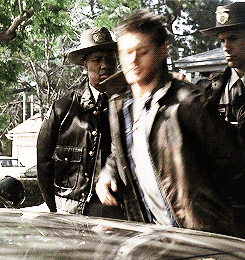A Hunk Of Planet Dissolves Before Our Eyes
It begins with a growl. Then there's a crack — a slurpy, sucky, crunchy noise. A guy is on the phone, and his pal interrupts him and says, "It's starting, Adam, I think. Adam? It's starting ..." The two are up on a bluff, overlooking a giant ice field.
They are standing next to time-lapse cameras. What happens next is astonishing: An enormous frozen, icy hunk of our planet suddenly opens, splits into bits and then sinks right before our eyes into the sea. It happens so, so quickly. And the scale of it? That's the part that shocked me. When they superimpose part of Manhattan Island onto the ice at the end of the clip, you think, "Uh oh." This is a peek into something monstrous.
The video comes from photographer James Balog's film, Chasing Ice. The two guys on the bluff at the beginning are part of Balog's Extreme Ice Survey team, which maintains scores of time-lapse cameras overlooking glaciers in Greenland, Iceland, Alaska, Canada, the Rockies and the Himalayas. During daylight hours, they watch and record. Then they share what they see with scientists and National Geographic, and turn the footage into movies and TV shows.
Losing All The Ice In The World? Let Me Calculate ...
What they're seeing, of course, is ice disappearing from mountain tops, from ice fields, from the poles. Seeing it go this quickly in so many places, raises the obvious question: How long will it be before there isn't any ice left? We've had such moments before in earth history; it's certainly possible. We have lived in a gentle age where, every winter, one can take a trip to someplace white to see a snowy mountaintop, a distant glacier creeping down a slope, or an iceberg in the distance. Come summer, the whiteness retreats. It's a lovely balance. But how long will that last?
When Henry Pollack (a professor emeritus of geophysics at the University of Michigan) was asked, he answered, "Losing all the ice in the world? I think sometime between a thousand and 10,000 years encompasses most probabilities."
A thousand years is not a lot of time. As Craig Childs says in his book, Apocalyptic Planet, 10 centuries ago Europeans were busy building cathedrals. Chinese merchants were sending flotillas to trade with Africans. "I was thinking we had more time," Craig says.
Konrad Steffen thinks Craig is right. A University of Colorado climatologist, Steffen figures (or figured, a couple of years ago) that Greenland might be iceless in 10,000 years, but Antarctica (being much bigger) will take a lot longer to turn bare.
But that's an endpoint. It's the middle passage that has so many scientists worried. Steffen tells Childs, "Greenland and Antarctica are very remote, and were considered to be big ice boxes that responded not very fast to climate change. We never developed a mechanism to observe them until we had satellites and lasers. Now we see some surfaces lowering up to 50 meters per year." He repeated that number, to make sure Craig heard. "Fifty — five-zero — meters per year." That's a vertical drop of about 150 feet. In two years, that's 300 feet. Then 450. Year after year — enormous piles of ice melting into the sea.
A lot of water. Coming our way.
A Hunk Of Planet Dissolves Before Our Eyes : Krulwich Wonders.
